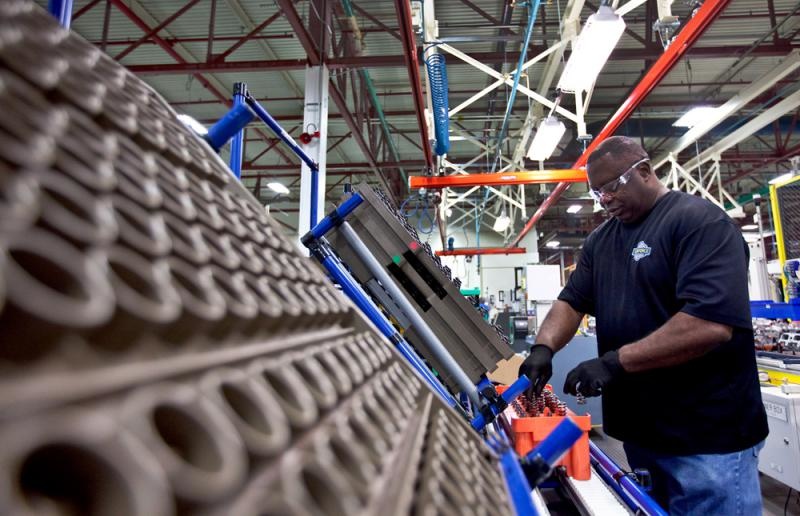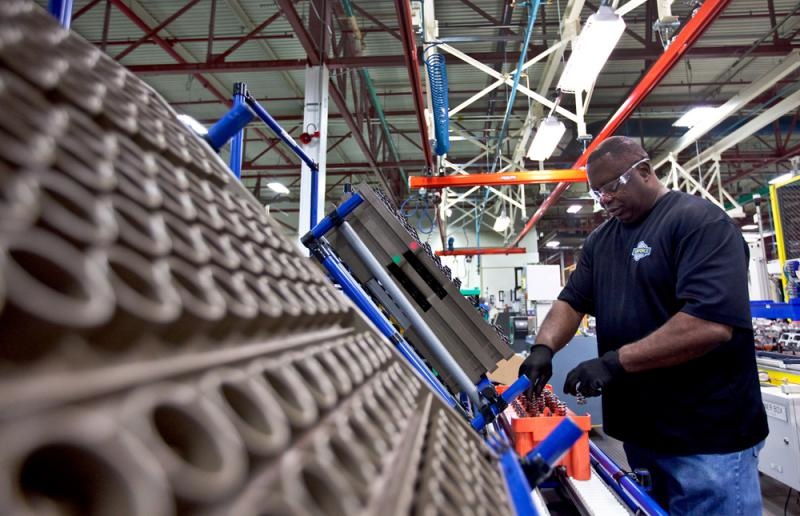By Li Xiaohong from People’s Daily

The US’ decision to levy additional tariffs on $200 billion worth of Chinese goods would severely damage the prospect of China-US trade, said a trade expert, calling on the US administration to stop trade confrontation and return to cooperation and development.
The US government should start from history and bear in mind the idea of cherishing the hard-won achievements it made with China since the two countries established diplomatic ties, added Xu Chen, chair of China General Chamber of Commerce-USA (CGCC), on behalf of Chinese enterprises in the US.
The US should focus on future development and be responsible for both Chinese and American people, as well as the peace and stability of the world, Xu, also the president and CEO of Bank of China USA, said after the willful decision of the US government had led to the escalation of trade friction between the two countries.
Next year would be the 40th anniversary of the establishment of formal diplomatic relations between China and the US, Xu told People’s Daily, adding that their relations have been developing in a generally positive manner despite some ups and downs.
China-US relationship has become one of the most important bilateral relations in the world, with the two countries’ GDP adding up to almost 40 percent of the world’s economic aggregate.
Their two-way trade surged to $674.5 billion in 2017 from less than $100 million in 1972, making them the largest trading partner to the other side.
Xu believes that to reduce trade deficit with China, the US should increase the export of commodities and services to China as the latter is further opening up its market, rather than increasing tariffs that will influence the interests of US consumers and enterprises.
As a matter of fact, the US-China Business Council had predicted before the trade friction started, that the US export of commodities and services to China would double to reach $369 billion by 2026 and $520 billion by 2050.
In addition, the key engine driving China’s economic growth has also been shifted from investment to consumption, and China has become one of the world’s largest consumer markets.
Thanks to China’s consumption upgrading, the strong purchasing power released by Chinese consumers in both domestic and overseas markets has provided unprecedented opportunities for enterprises from the US and the rest of the world.
Besides, the direct investment between the two countries also witnessed robust growth. By the end of 2017, China’s foreign direct investment in the US had totaled $140 billion, creating 200,000 jobs directly and over one million jobs indirectly for local community.
Multiple major Chinese manufacturers have established factories in the US for business expansion and better services for local consumers, including Shandong Yuhuang Chemical (Group) Co., Ltd., Wanxiang Group Corporation, Keer Group, Jushi Group, BYD, Tianjin Pipe (Group) Corporation and Fuyao Group.
These companies have been well received by the states and local governments of the US, as well as the communities, employees and families there. Their arrival brings win-win results for all stakeholders.
Chinese President Xi Jinping promised at the Boao Forum for Asia this April that China would significantly broaden market access on services, and financial services in particular.
Finance is a competitive industry of the US, and the opening of the Chinese market will definitely create favorable opportunities for US financial enterprises.
However, the US imposition of additional tariffs on $200 billion worth of Chinese goods would severely impact the pattern of China-US trade, Xu noted.
He warned that the trade system maintained by Chinese and US leaders through wisdom, mutual trust and coordination, as well as the close business partnership between the two countries based on complementary advantages and market demands, would be irreversibly damaged.
By initiating and escalating the trade war, the US would not bring a prosperous future, but greater loss to the economic development of not only China and the US itself, but also the world at large, the expert stressed.
The US government should start from history and bear in mind the idea of cherishing the hard-won achievements it made with China since the two countries established diplomatic ties, added Xu Chen, chair of China General Chamber of Commerce-USA (CGCC), on behalf of Chinese enterprises in the US.
The US should focus on future development and be responsible for both Chinese and American people, as well as the peace and stability of the world, Xu, also the president and CEO of Bank of China USA, said after the willful decision of the US government had led to the escalation of trade friction between the two countries.
Next year would be the 40th anniversary of the establishment of formal diplomatic relations between China and the US, Xu told People’s Daily, adding that their relations have been developing in a generally positive manner despite some ups and downs.
China-US relationship has become one of the most important bilateral relations in the world, with the two countries’ GDP adding up to almost 40 percent of the world’s economic aggregate.
Their two-way trade surged to $674.5 billion in 2017 from less than $100 million in 1972, making them the largest trading partner to the other side.
Xu believes that to reduce trade deficit with China, the US should increase the export of commodities and services to China as the latter is further opening up its market, rather than increasing tariffs that will influence the interests of US consumers and enterprises.
As a matter of fact, the US-China Business Council had predicted before the trade friction started, that the US export of commodities and services to China would double to reach $369 billion by 2026 and $520 billion by 2050.
In addition, the key engine driving China’s economic growth has also been shifted from investment to consumption, and China has become one of the world’s largest consumer markets.
Thanks to China’s consumption upgrading, the strong purchasing power released by Chinese consumers in both domestic and overseas markets has provided unprecedented opportunities for enterprises from the US and the rest of the world.
Besides, the direct investment between the two countries also witnessed robust growth. By the end of 2017, China’s foreign direct investment in the US had totaled $140 billion, creating 200,000 jobs directly and over one million jobs indirectly for local community.
Multiple major Chinese manufacturers have established factories in the US for business expansion and better services for local consumers, including Shandong Yuhuang Chemical (Group) Co., Ltd., Wanxiang Group Corporation, Keer Group, Jushi Group, BYD, Tianjin Pipe (Group) Corporation and Fuyao Group.
These companies have been well received by the states and local governments of the US, as well as the communities, employees and families there. Their arrival brings win-win results for all stakeholders.
Chinese President Xi Jinping promised at the Boao Forum for Asia this April that China would significantly broaden market access on services, and financial services in particular.
Finance is a competitive industry of the US, and the opening of the Chinese market will definitely create favorable opportunities for US financial enterprises.
However, the US imposition of additional tariffs on $200 billion worth of Chinese goods would severely impact the pattern of China-US trade, Xu noted.
He warned that the trade system maintained by Chinese and US leaders through wisdom, mutual trust and coordination, as well as the close business partnership between the two countries based on complementary advantages and market demands, would be irreversibly damaged.
By initiating and escalating the trade war, the US would not bring a prosperous future, but greater loss to the economic development of not only China and the US itself, but also the world at large, the expert stressed.
 Menu
Menu
 Business leader calls on US to stop confrontation, return to cooperation track
Business leader calls on US to stop confrontation, return to cooperation track
















